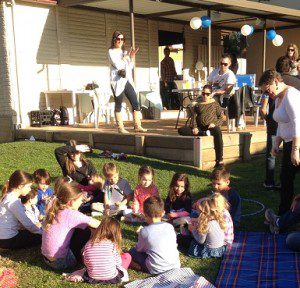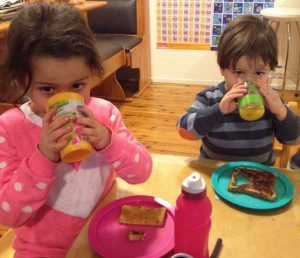
While being a mother is not always an easy role, it’s one of the most rewarding.
However, in an age where we’re more connected than ever, of citizen journalism, of well-manicured social media presences and a new “parenting style’’ label coming out every other week, have we created a society where our Aussie mothers are being too critical of themselves and the important roles that they play? New research has revealed that nearly 60 percent of mothers say their biggest critics are not their family, other mothers, the media or the workplace, but themselves.
Mothers view their children (13.5 percent) and their partners (8.5 percent) as their second and third biggest critics, and only 3.4 percent said other mothers were the most critical of them.
The research, commissioned by Barnardos Australia to launch its annual Barnardos Mother of the Year awards and undertaken by Pure Profile, surveying Australian mothers, shows that only 6 percent would rate themselves a 10 out of 10 in their role.
When it comes to the greatest pressures faced by mums, meeting the needs of their children created the most pressure, followed by finances, society’s expectations, and other people’s judgement.
Manisha Amin, Barnardos Australia Marketing Director, says the findings suggest that Australian mums need to recognise the positive impact they have rather than being so hard on themselves.
“The fact that only 6 per cent rated themselves as a ten out of ten is telling,’’ says Manisha.
“The majority of mums believe there is room for improvement. It’s sad that in our society we undervalue how exceptional mums are.
“More than a third of mums said their partners are their biggest supporters, followed by their children at 28.3 percent, so we’re calling on Australian families to nominate their mum for Barnardos Mother of the Year as a show of support for the integral role these women play.’’
Social demographer Bernard Salt, a supporter of Barnardos Mother of the Year says: “What we’re seeing is an increase in mothers tending to be self-critical of themselves, and I think that comes down to a matter of self doubt.
“This has nothing to with capability; it has everything to do with self confidence.
“There is a term that describes it, Imposter Syndrome, where people are doubtful about the roles that they’re in – and this can be anyone in any role, a journalist, a young consultant – but it’s not actually based on the way that they’re performing in those roles, it’s self doubt about their ability to be in the role,’’ says Salt.
“There is also much more expectation from society these days with regard to parenting generally and mothering especially.
[social_quote duplicate=”no” align=”default”]“And for a number of reasons – through social engagement, online entertainment, education, awareness and the impact of advertising – we’re now more connected than ever.[/social_quote]
“But that also means that we’re seeing a bar set – and it’s very high and it’s very visible.
“Expectations are elevated: in advertisements mothers appear glamorous, their kids are well behaved, things are always going smoothly – we don’t see the other side of parenting, not many people are loading a photo of a kid throwing a tantrum over breakfast or of themselves looking frazzled and struggling to keep up.

“For the most part, we only see the best of other people’s lives. And even though we know that we’re being presented with a false reality, it can still lead to a feeling of not quite living up to expectations.
“And all of this is quite unfair of course, as we know mothers do a terrific job, and there is not one size fits all model.
“Whether you’re a mother in the 1920s, or today, whether you have eight kids, or one, motherhood is motherhood: it has always resonated as a valuable and of course a central part of human life,’’ says Salt.
“It is not that motherhood is getting any better or worse, it’s that society’s expectations of motherhood is changing. What has changed is that insecurities have evolved and self-doubt has heightened possibly because of modern developments in the media, through advertising and through the advent of social media.’’
Journalist, author, mother of two and Barnardos Mother of the Year ambassador Jacinta Tynan also weighs in with her support for the campaign, saying she is a firm believer in celebrating mothers of all backgrounds, but most importantly, of women supporting each other in celebrating motherhood.
[social_quote duplicate=”no” align=”default”]”As mothers we don’t just raise children but shape them,’’ says Jacinta.[/social_quote]
“Barnardos Mother of The Year aims to recognise women who defy limits of love and care to change the course of the next generation, giving children the gifts of love, security and hope.
“As a mother myself, I am continually inspired and in constant awe of mothers who are brought to the forefront.
“The largest national campaign celebrating mothers, these awards recognise the critical role mothers play in helping children reach their full potential, and that’s why I’m delighted to support such a wonderful, but most of all important initiative.”
Barnardos Mother of the Year is the largest and most recognised national awards celebrating mothers.
The awards publicly acknowledge the critical role mothering plays in keeping children safe, nurturing them to help realise their potential and shaping the future of Australia.
Celebrating its 21st year, Barnardos Mother of the Year is the charity’s flagship campaign and aims to drive a social movement around the importance of mothering. For more information or to nominate go to the Mother of the Year website.
